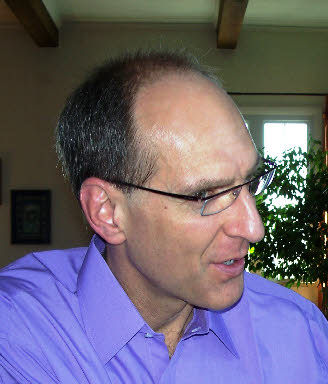Andreas Glaeser
Personal background
CV:
Click HERE
Background:
I was born and schooled in Tübingen, an old German university town prettily draped
over a hill between the Neckar river and the Ammer creek. The latter connects the
town upstream to the wine growing village of Unterjesingen where I actually lived.
The region lies in the heart of the Swabian lowlands basking comfortably between
the Jura mountains to the east and the Black Forest to the west. I attended Kepler-
Yet, in Thailand I had also for the first time an opportunity to read Max Weber, both his Protestant Ethic and its companion study on Hinduism and Buddhism. This was a transforming experience. With Weber I had finally found a model for the kind of social science that I found deeply engaging. A McCloy Scholarship afforded me with the wonderful opportunity to study for two years at Harvard, where I then hastened to take courses in anthropology and sociology. Between these disciplines, sociology won out because I loved its historical depth, and at least in its classic European embodiment its proximity to philosophy. Sociology also appeared more practical to me because I eventually wanted to return to Europe where the job market for sociologists seemed better than for anthropologists. However, I hung on to anthropology because its contemporary version had to teach me so much more about culture and places like Thailand than contemporary sociology did. I also found it so much more open to contemporary philosophy than sociology. In the end, my dissertation committee was half composed of sociologists and half of anthropologists: Theda Skocpol, Orlando Patterson (both sociology), Sally Falk Moore and Michael Herzfeld (both anthropology). Since I worked ethnographically, the anthropologists assumed the driving seat with Sally if not de jure than certainly de facto at the helm of my committee. I graduated in November 1997 and took my first academic job at Chicago in July 1998.
Conference Bio:
Andreas Glaeser is an associate professor of sociology at the University of Chicago.
He works in the hermeneutic tradition of the social sciences eager to engage empirical
work and theory development in a dialectical process. In this spirit his first book
Divided in Unity: Identity, Germany and the Berlin Police (Chicago: 2000) develops
a theory of identity formation processes while exploring the reasons why east and
west Germans find it so hard to understand each other after political unification.
His second book Political Epistemics: The Secret Police, the Opposition and the End
of East German Socialism (Chicago: 2010) formulates a hermeneutic, knowledge-







